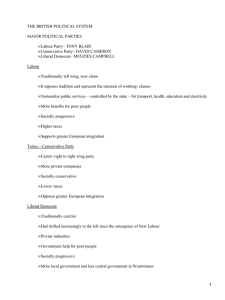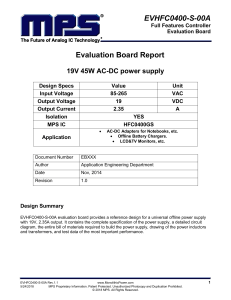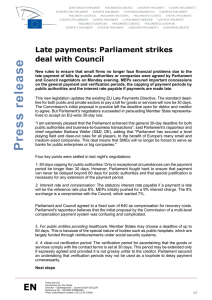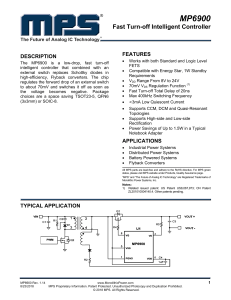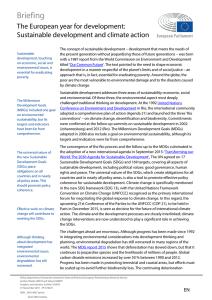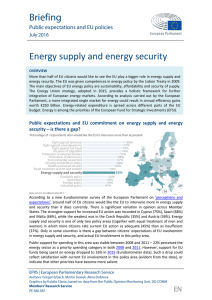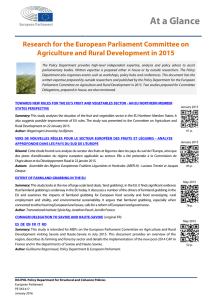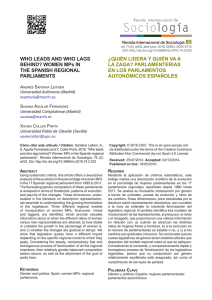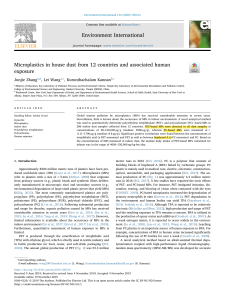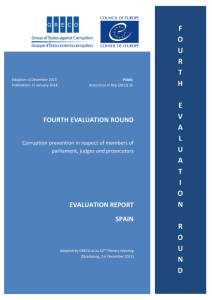Code of Ethics of the Members of the Georgian Parliament
Anuncio
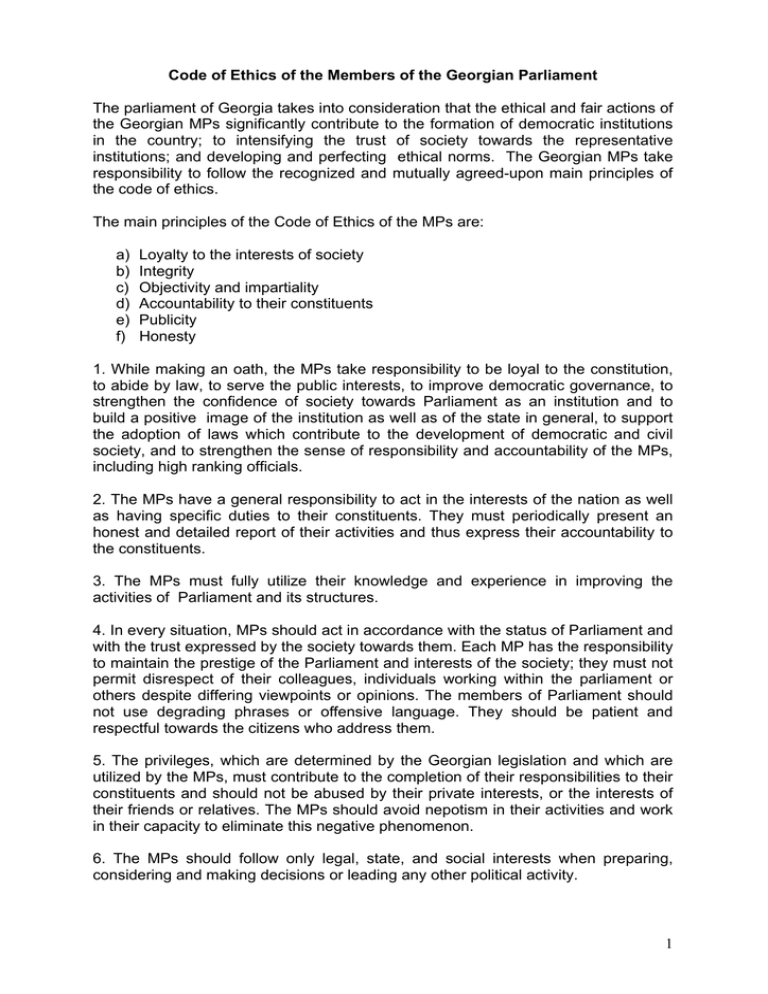
Code of Ethics of the Members of the Georgian Parliament The parliament of Georgia takes into consideration that the ethical and fair actions of the Georgian MPs significantly contribute to the formation of democratic institutions in the country; to intensifying the trust of society towards the representative institutions; and developing and perfecting ethical norms. The Georgian MPs take responsibility to follow the recognized and mutually agreed-upon main principles of the code of ethics. The main principles of the Code of Ethics of the MPs are: a) b) c) d) e) f) Loyalty to the interests of society Integrity Objectivity and impartiality Accountability to their constituents Publicity Honesty 1. While making an oath, the MPs take responsibility to be loyal to the constitution, to abide by law, to serve the public interests, to improve democratic governance, to strengthen the confidence of society towards Parliament as an institution and to build a positive image of the institution as well as of the state in general, to support the adoption of laws which contribute to the development of democratic and civil society, and to strengthen the sense of responsibility and accountability of the MPs, including high ranking officials. 2. The MPs have a general responsibility to act in the interests of the nation as well as having specific duties to their constituents. They must periodically present an honest and detailed report of their activities and thus express their accountability to the constituents. 3. The MPs must fully utilize their knowledge and experience in improving the activities of Parliament and its structures. 4. In every situation, MPs should act in accordance with the status of Parliament and with the trust expressed by the society towards them. Each MP has the responsibility to maintain the prestige of the Parliament and interests of the society; they must not permit disrespect of their colleagues, individuals working within the parliament or others despite differing viewpoints or opinions. The members of Parliament should not use degrading phrases or offensive language. They should be patient and respectful towards the citizens who address them. 5. The privileges, which are determined by the Georgian legislation and which are utilized by the MPs, must contribute to the completion of their responsibilities to their constituents and should not be abused by their private interests, or the interests of their friends or relatives. The MPs should avoid nepotism in their activities and work in their capacity to eliminate this negative phenomenon. 6. The MPs should follow only legal, state, and social interests when preparing, considering and making decisions or leading any other political activity. 1 7. The MPs should provide society with exact information concerning the welfare standards and financial interests of themselves and their families. They should provide a timely account of their activities in order to avoid any possible conflicts between their private finances and society’s interests and in case of such a conflict should solve it in to the benefit of society or refuse to participate in a public discussion of such issue if their private interests are represented. 8. The MPs should actively cooperate with the representatives of mass media in the matters, which are important for the society. 9. The MPs should express a tolerant and fair-minded position towards their critics. 10. The MPs should be fair to everyone; should act impartially on the bases of the Constitution, laws, procedural norms, and the Code of Ethics; and should follow the principle of equality for all with respect to the laws. 11. The MPs are obliged to treat all citizens of Georgia as well as citizens of other states with tolerance and respect, despite differences in race, language, gender, religion, political views, national-ethnic or social background. 12. The MPs should set an example to society in accordance with the universally recognized norms of ethics in their manner of presentation, behavior, and public activities while fulfilling parliamentary duties and in general. 2
